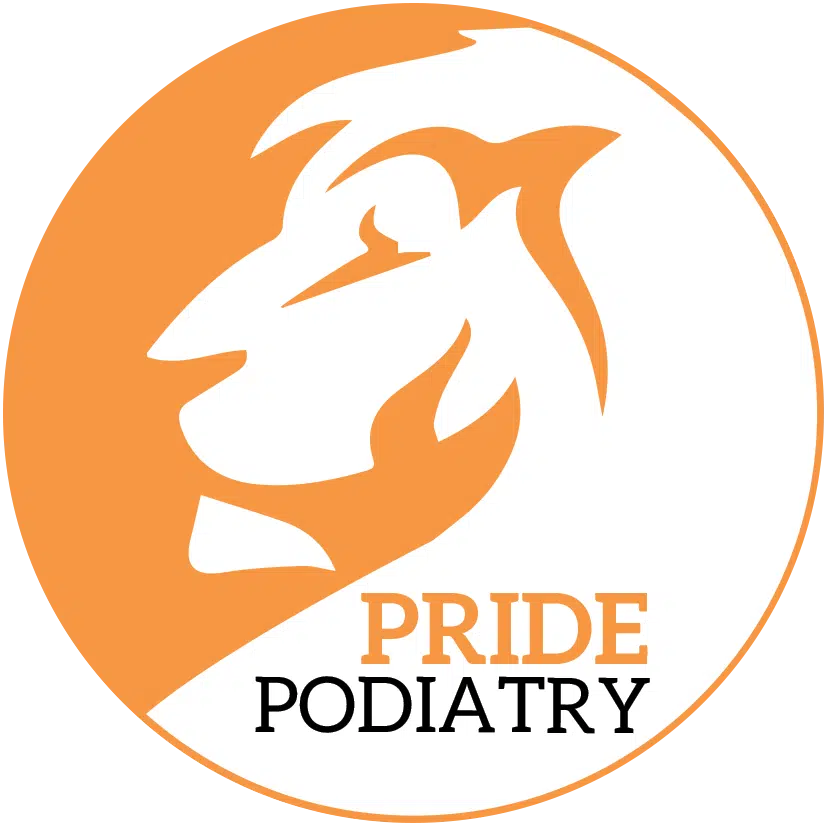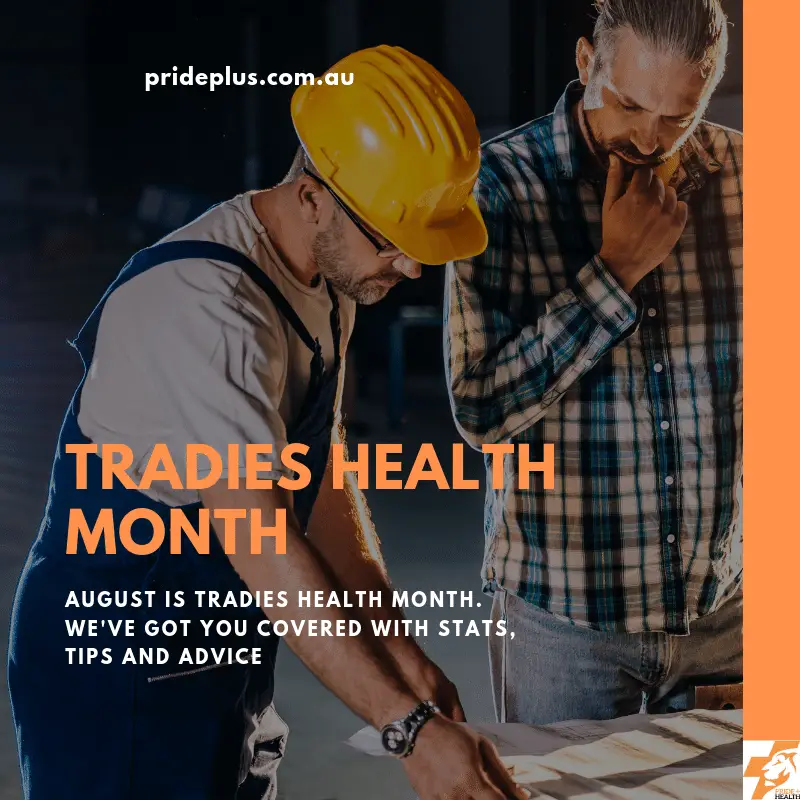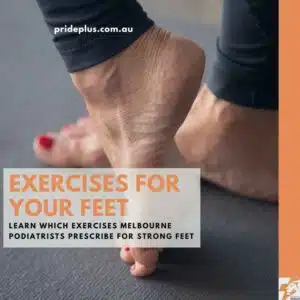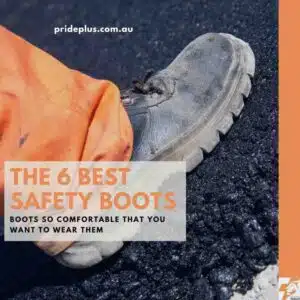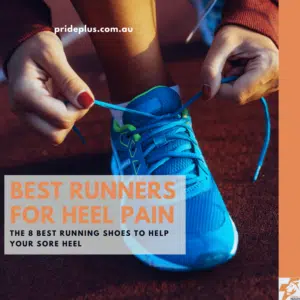August is Tradies Health Month where the Australian Physiotherapy Association and partners are taking a look at what is done well, and what can be done better to improve the health and safety of Tradies in Australia.
In this piece, we’ve got some handy advice here from a group of PridePlus Health experts in musculoskeletal care.
First, let’s start with the facts.
- Tradies account for 60% of all musculoskeletal injuries across occupations
- Despite only accounting for ⅓ of the total workforce (talk about over-representation!)
- Tradies also account for 39% of all medical conditions across occupations
- Closer to the ⅓ workforce number but still too many
- The average workplace injury claim leads to 5.4 weeks of missed work
- When so many Tradies are their own boss, this leads to an injury being a greater economic cost than those planned holidays which get missed when everyone’s working hard to make ends meet
Those facts above just go to show how important health and safety is to tradies, their families and employers.
So what can we do about it?
The APA has highlighted a few key areas:
- warm-up each morning before you start work with some targeted stretches, such as quadricep stretches (front of the thigh) if your work involves lots of squatting
- pace your workload and rate throughout the day to avoid issues related to overuse and fatigue
- communicate well with your workmates to ensure you are working in the most efficient and safe manner
- be willing to speak up if you feel uneasy about the level of risk you are exposed to at work
- don’t put yourself at risk of injury by rushing
- be willing to say ‘no’ when required to ensure both your own safety and that of others, even if it might make you unpopular at that moment. Worksite supervisors and employers are legally responsible for safe worksites and conditions and will be held accountable if there are breaches of worksite regulations
- seek advice from your physiotherapist if you experience any aches or pains that are persistent, rather than waiting till it’s bad enough to stop you from continuing work
- manage injuries immediately with the RICE method (rest, ice, compression, and elevation).
Perhaps one of the biggest areas where improvements can be made is around lifting. The age-old adage about bent knees, straight backs does not stack up to research or clinical practice. Again, the APA weighs in:
Lifting technique is important to help prevent injury. There is a misconception that bending your knees and keeping your back straight is good lifting technique—it isn’t. Most tradies would question how often they could actually do that while taking items off the back of their ute or van, or while moving around a workshop or building site.
Here are a few tips to help you master the correct lifting technique:
- avoid hazardous lifting where possible. This means avoiding lifting heavy or awkward objects. You should also minimise lifting below waist height and above shoulder height
- always assess the load to decide whether it has to be lifted and where the load will be placed
- if possible, use lifting equipment or grab a mate to help you out
- keep a wide base of support
- keep the load close to your body
- maintain the natural curves of the back, especially a small curve in the lower back. Your physiotherapist can help you ensure you’re using the correct techniques.
Our Top Tips for Tradies
Our physiotherapist in Pascoe Vale Naveena, who has significant experience working with injured tradies as well as completing extra professional development in workplace health has this advice.

“Don’t ignore the little niggles-these are often the early warning signs of potential musculoskeletal injuries. Seek help from a professional who understands the interaction between the human body and its environment in any given workplace and is able to offer solutions. These solutions could be ergonomic (biomechanical), appropriate load and muscle strength to do a given activity. Being proactive about your physical health is crucial in your profession and is wiser than ‘She’ll be right’ mindset”.
Whilst back pain is the most common complaint for tradies presenting to health professionals, ankle pain is not far behind.
Our podiatrist Gus McSweyn has this to say:
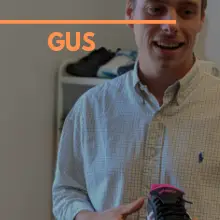
“Our feet and ankles and the work they do, are often taken for granted until something goes wrong. It is then that we realise what a crucial role they play in allowing us to be able to fulfill the jobs and lifestyles we wish. This is why we need to make sure they are strong enough and supported enough to be able to play this role. The right boots and some strength through your balance muscles can go a long way to preventing problems”
So, to our dearly beloved Tradies who we rely on to keep the lights on, the cars moving, the toilets flushing and our rooves over our heads. We have this to say.
Thank-you, for all that you do. Please let us help you in the way you help us. Take care of yourselves out there, take care of each other. Be smart, be healthy and see health professionals before injury strikes.
